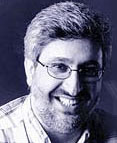SPORTS IN TURKEY
Football crazy, football mad
By Yigiter Ulug

When Eşref Apak won the bronze medal in the hammer-throwing competition at the 2004 Olympic Games in Athens, he became only the second person to win an athletics medal for Turkey in over 100 years. Turks, it would seem, are not very good at sports.
We have no contenders at Wimbledon, Roland Garros, or the Tour de France. The republic is 83 years old, and it has a population of more than 70m, but it has yet to produce a top-class swimmer, gymnast, athlete or tennis player. If Turkey has sports heroes, they are wrestlers or weightlifters. Until a few weeks ago, when her 5,000m record was broken, Turkeys only world record holder athlete was Elvan Abeylegesse, who was born in Ethiopia.
For most Turks, however, sport consists of one thing only football. It is the most popular and well-organised sport in Turkey. Although there are many clubs around the country, only four matter Besiktas, Fenerbahce and Galatasaray in Istanbul, and Trabzonspor, based in the Black Sea city of Trabzon. These clubs have shared the league championship among themselves for more than half a century.
The most progressive and widely followed of the clubs is Fenerbahce, or the Republic of Fenerbahce, as fans call their favourite. As an institution with a nationwide following, the club sometimes seems to be institutionally stronger than most of Turkeys corporations or political parties. Stories about the clubs wealth and power abound. There is the one about a Fenerbahce player, doing his military service, who was flown to a very important game in a Turkish air force warplane. Recently, the club hired a private plane to bring Stephen Appiah currently starring for the Ghana national team at the World Cup to Istanbul for a game even though he was officially on duty with the Ghanaian national side at the African Nations Cup.
Why is Turkey so football-crazy? Two key events help to explain the passion for the game. The first is the arrival of television. The 1972 Olympics gave Turks their first glimpse of international sports, and of the fact that there were no Turks in contention. Local heroes in wrestling, boxing, swimming and cycling were just not good enough. Turkey had its own national sporting events such as the Presidential Cycling Tour or the boxing championships, which were given extensive coverage in the papers and on the radio.
Disillusion with their local heroes helped to persuade many Turkish sports fans to begin to look at football more closely because the leagues weekly schedule was easy to follow. The competition involving the Big Three Besiktas, Fenerbahce and Galatasaray began to draw thousands of fans and spectators. Trabzonspor emerged in the 1970s, adding a little more competition, shocking the Istanbul clubs by winning six championship titles between 1975 and 1984.
The second event that helped to make football a national obsession was political. In 1980, Turkey suffered a military coup after several years of violent unrest. A period of repression followed. Turgut Ozal, the technocrat who became prime minister in the early 1980s, began to use football to help to depoliticise Turkish society, especially among young people. Ozals government began to spend enormous amounts of money on the modernization of stadiums and the infrastructure of football.
Suddenly, Turkish football began to establish itself in Europe. Galatasaray hired Jupp Derwall, the famous German coach, in 1984. The club reached the semi-final of the European Champions Cup in 1989, and won the UEFA Cup in 2000. Finally, in 1996, the national team the Lions of Fatih Terim made its first appearance in the European Championship. This was a Here I come scream from one of the most crowded countries on the continent to sporting superpowers like Germany, England, Italy and France.
Turkish football really made its mark on the world at the 2002 World Cup, when the national team finished third. That achievement helped millions of Turks to forget for a moment about economic crisis, debts, and unsolved political problems. Red flags everywhere were not only telling us nationalism was heavily supported by football, but also that Ozals vision had been right.
Today football overshadows many of the problems stifling Turkeys younger generations. While topics concerning education, health, social security, unemployment, and unplanned urbanisation await urgent solutions, football is always number one on the agenda, despite its own growing list of problems. The Turkish national team did not reach the finals of Euro 2004 in Portugal and this years World Cup in Germany. No club team could repeat Galatasarays epic UEFA run. Everybody talks about violence in the stands and corruption in the leagues. The ordinary fan, meanwhile, awaits the first win over England and another adventure at the next World Cup.
Copyright The Financial Times Limited 2006